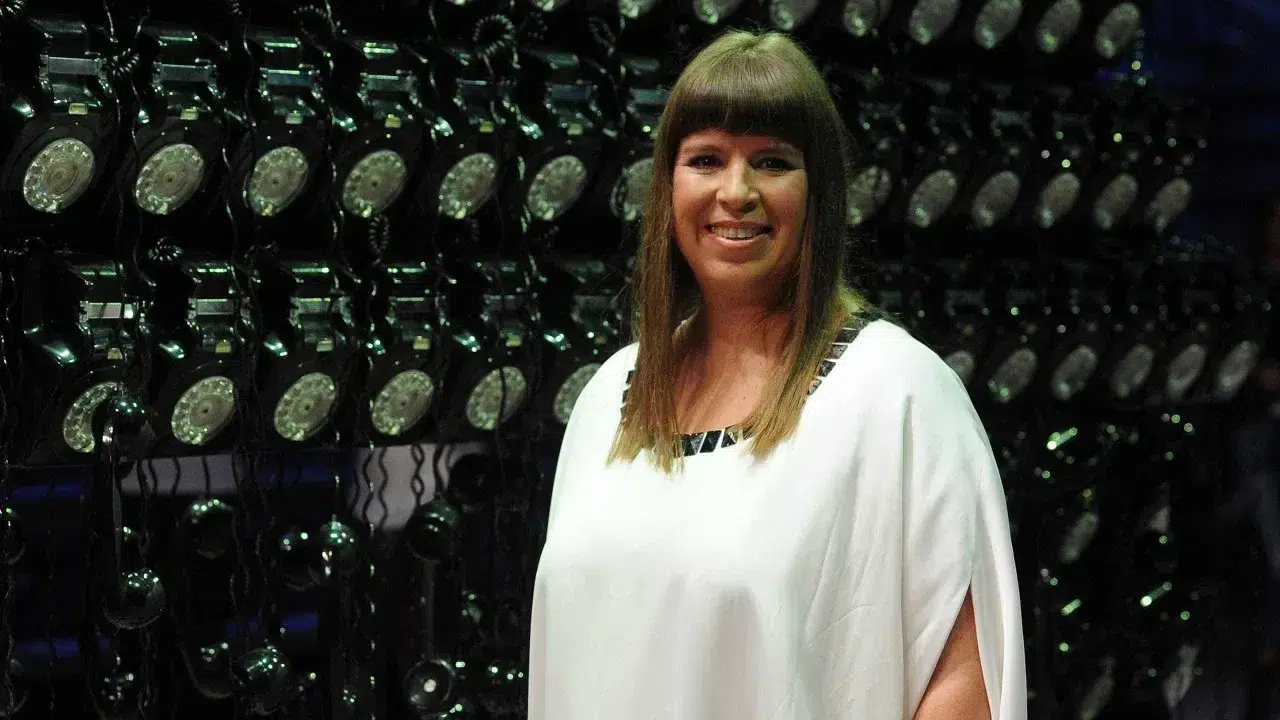
A renowned visual artist, Joana Vasconcelos, is set to open an exhibition next Saturday at the Portuguese Decorative Arts Museum in Lisbon, drawing inspiration from the golden carvings of Portuguese Baroque.
The exhibition, titled ‘Drag Race – The Transgression of the Baroque,’ will be on display at the foundation’s Ricardo do Espírito Santo Silva Museum (FRESS), located near Portas do Sol in Lisbon, until November 30.
The showcase focuses on the reinvention of a sports car, a Porsche Carrera, transformed with the exuberance of golden carvings and 18th-century coaches, embracing an approach of “freedom and subversion.”
“FRESS aims to reveal the fabulous reverse journey of Joana Vasconcelos’s artistic creation, starting from the final result and deconstructing it back to the initial idea,” the Foundation stated in a press release.
In addition to golden carvings, Joana Vasconcelos drew inspiration from “the marine motifs of the Tibães Monastery [Braga], as well as the magnificence of the Coach of the Oceans from the National Coach Museum’s collection.”
In this piece by Vasconcelos, “the Baroque splendor of the carriages of King John V, a symbol of theatrical luxury, intertwines with the irreverence of red plumes, an icon of freedom and subversion.”
“The result is the reinvention of the Porsche 911 Targa Carrera, which is reborn not only as an object but as a manifesto: the celebration of exuberance, fantasy, and the deconstruction of institutional apparatus.”
To bring this work to fruition, the artist engaged the craftsmen of FRESS, among others skilled in the arts of carving, chiseling, and gilding, as highlighted by the foundation, emphasizing that this represents “an affirmation of traditional Portuguese techniques and their preservation, uniting tradition and contemporary elements in a single piece.”
In her artworks, Joana Vasconcelos has often utilized traditional Portuguese decorative techniques, ranging from Portalegre tapestries and tile work to Pico island lace and Nisa embroidery, Viana do Castelo filigree, and Bordalo Pinheiro ceramics, among others.
Joana Vasconcelos, born in 1971, has built a career spanning over three decades, characterized by the decontextualization of everyday objects and the appropriation of traditional crafts, which she adapts to the 21st century to question themes such as the role of women, consumer society, and cultural identity.
Vasconcelos officially represented Portugal at the 2013 Venice Biennale, transforming a Lisbon ferryboat with tile work for the primary venue of the prestigious contemporary art exhibition.
She was the first female artist and the youngest creator to exhibit her work at the Palace of Versailles in a solo exhibition that set visitor records, and her work has been showcased at institutions like the Guggenheim Museum Bilbao (Spain), the Pitti Palace, and the Uffizi Galleries (Florence, Italy), among others.
This year, she inaugurated exhibitions including “Flamboyant” in Madrid, Spain, “Flowers of my desire” in Ascona, Switzerland, “Pavilion of Wine” in Brasília. Last year, her projects included “The Valkyries Castle” in Germany, “Valkyrie Liberty” at The Armory Show in New York, and “The Garden of Eden” at the Côa Museum in Vila Nova de Foz Côa, in the Guarda district.
At the Museum of Art, Architecture, and Technology, Joana Vasconcelos set new visitor records with the exhibition “Plug-In,” attracting nearly 300,000 entries between 2023 and 2024.
Joana Vasconcelos, the first artist to win the EDP Foundation’s New Artists Award in 2000, began exhibiting in the 1990s. Her work gained international prominence in 2005 when she participated in the Venice Biennale with the piece “The Bride,” a monumental chandelier made from feminine hygiene tampons.
In 2010, she presented the anthology exhibition “No Network” at the Belém Cultural Center in Lisbon, followed by a retrospective at the Ajuda National Palace in 2013.




